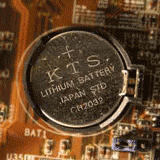What you need to know about SSD vs Hard Disk
The biggest change between how the 2 drives work is their design. The regular hard disk has platters and a rotor that accesses the information by using magnetism to do so. The SSD uses firmware chips that are flashed with information. There are no moving your parts. In a way, it's much like RAM, only the information is not lost when the computer powers down.

SSD vs Hard Disk Speed Explored
Although all the drive specifications are very different depending on which drive you get, I'll compare a 1TB black edition Western Digital Drive, which is a very good hard drive, with an OCZ Agility 2 solid state hard drive. For those who really want to see speed the OCZ Revodrive just about doubles the read and writes of this drive, but since pricing doesn't really compare apples to apples, I've left it out.Times are all peak times, the best you'll get.
| Hard drive | SSD | |
| Read in MB/S | 126 | 285 |
| Write in MB/S | 126 | 275 |
| Access Time in ms | 12.2 | .1 |
| I/O Operations/second | 150 | 10 000 |
| Power usage in watts when used | 7.6 | 2.0 |
TIP! Before you buy a SSD as your primary drive, make sure it is bootable as not all solid state hard drives are. You can find this out from the manufacturers website.
Evaluating the SSD vs Hard Disk Data
There is also an additional thing that really impacts the speed of a hard drive, when you look at the peak times above, the hard drive will drop as it gets further toward the inside of the platter, probably down to about 55 mb/s. A SSD will dip a bit, but only down to about 250 mb/s. As you can see, it's actually more like 4 times the read and write speed.Access time, when your computer requests information from the hard drive, it needs to wait an average of 12.2ms for a hard drive, and only .1ms on a SSD drive for the data to start flowing. It sounds like nothing, but think of 1000 requests. The difference becomes really obvious now. The hard drive will take 12 seconds to perform just the finding of the data, the SSD, only 100ms.
Now, if we requested a total of 1 GB of data over 1000 requests, it would take the hard drive just over 30 seconds to make it happen. The solid state drive would only take just over 4 seconds. With the amount of files on a computer, and the amount of requests will make the difference really shine through.
The biggest thing to realize with a SSD is simply the size. Typically, as of now, the price of a solid state drives is still pricey unless you get a smaller one. To make this work for you, get a 60GB SSD which contains your operating system and the main programs that you use, then buy a 1TB hard drive for storage. The single big multi media files that don't have to be loaded at light speed.
Finally, when you look at power usage it is another attractive thing about solid state, since they don't have moving parts, they use just over a 1/4 of the power of the typical hard drive.
The conclusion for SSD vs hard disk is simple, the solid state drive is superior, the only limiting factor right now is size, but as they get more developed this will change as well. If you need a lot of storage and aren't rich, you'll need to stick with the traditional style hard drive.
Learn how to build your own computer




